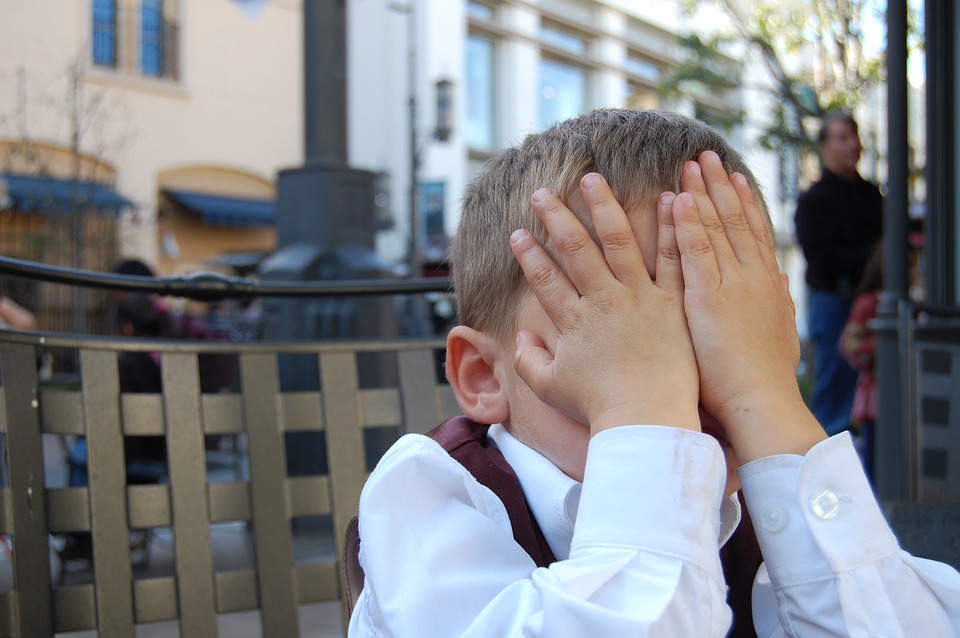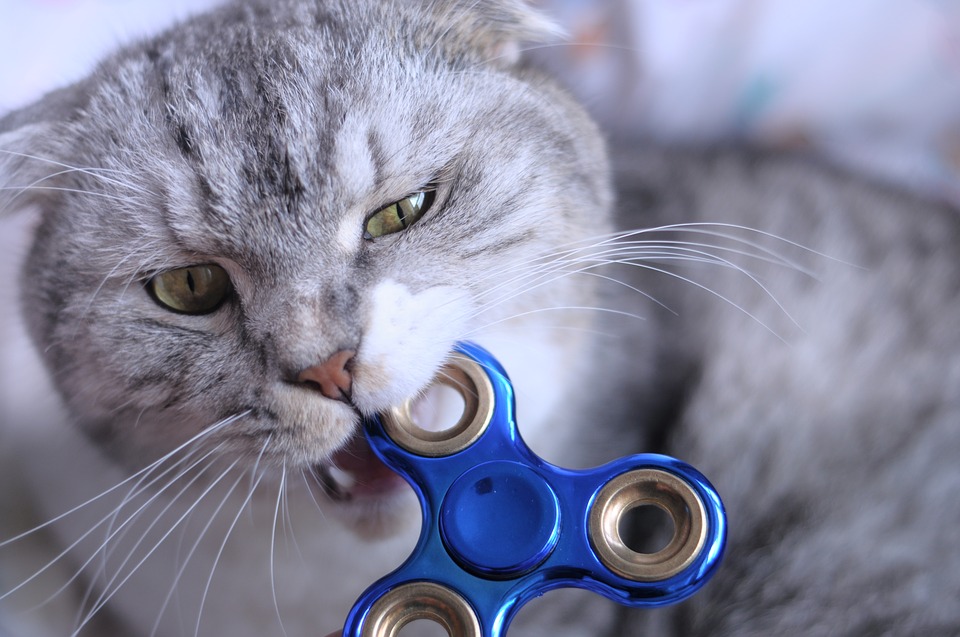#SensoryProcessingDisorder
Sensory Workshop looking at signs and signals as well as providing some solutions for Sensory Processing Difficulties
We all process sensory input differently, but some people are especially sensitive. What might be a minor annoyance for you can be overwhelming and disruptive to someone who struggles with sensory processing issues. This curriculum looks at sensory processing issues and how they affect children.
Exploring eight of our senses and sensory additional needs and disabilities as well as understanding Sensory Processing Disorder.
We interpret and experience the world through our five senses. We also use proprioception, to coordinate our movements, and our vestibular system, to maintain our balance.
Autistic people use these same sensory tools to experience and engage with the world. However, for many of those individuals, they can work quite differently to those who do not have the condition. Autistic people can be either hypersensitive or hyposensitive to the sensory environment, or a mixture of the two.
This workshop will explore the differences in sensory processing and how these differences can influence the everyday lives of Autistic people. It will also look at simple supports that can be put in place to make the sensory environment better suited to Autistic people.
The workshop will last 50mins with 10mins afterwards for questions, and will be run by our Training Officer James Moroney.
Supporting children and young people with special or additional needs or disabilities - accessibility, inclusion and belonging for all. An Urban Saints event. Includes a full-colour A4 workbook, access to video learning, and an interactive online group training session.
There are at least eight senses; five that we can all think of; sight, hearing, smell, taste and touch, as well as three that we might not know so much about; vestibular (balance and movement), proprioception (body awareness), and interoception (awareness of what’s happening inside the body).
This seminar explores all eight senses, and provides us with practical ways to learn about them with our own children, or with children we care for in a club or group, as well as thinking about what Jesus did when he met people with sensory impairments or how he and the disciples responded to their own senses.
We will also understand Sensory Processing Disorder, which is journeyed with by as many as one-in-ten children and young people and is often experienced alongside a range of other additional needs and disabilities.
Exploring eight of our senses and sensory additional needs and disabilities as well as understanding Sensory Processing Disorder.
Supporting children and young people with special or additional needs or disabilities - accessibility, inclusion and belonging for all. An Urban Saints event. Includes a full-colour A4 workbook, access to video learning, and an interactive online group training session.
There are at least eight senses; five that we can all think of; sight, hearing, smell, taste and touch, as well as three that we might not know so much about; vestibular (balance and movement), proprioception (body awareness), and interoception (awareness of what’s happening inside the body).
This seminar explores all eight senses, and provides us with practical ways to learn about them with our own children, or with children we care for in a club or group, as well as thinking about what Jesus did when he met people with sensory impairments or how he and the disciples responded to their own senses.
We will also understand Sensory Processing Disorder, which is journeyed with by as many as one-in-ten children and young people and is often experienced alongside a range of other additional needs and disabilities.
The 'All Inclusive?' Making Sense Of Our Senses training programme includes:
- A comprehensive colour A4 training workbook with a wealth of information and resources sent to each participant in advance.
- Access to a series of videos to explore and learn through, covering a range of topics including an example of sensory overload, an overview of sensory processing disorder, putting together and using a 'Fiddles Box', how to create a sensory safe space, and more.
- Finally, a Zoom session including discussion groups, case studies, Q&A, and signposting to further resources to investigate, as we wrap this programme up together.
- Participants completing all three Urban Saints 'All Inclusive?' training programmes will receive a certificate.
17
Kaitlin Alvey MS,OTR/L, TheraTree Clinical Manager and Occupational Therapist, leads this hybrid in-person and virtual workshop.
Deadline to register: Thursday, April 15th, 2021
If you are making the blanket for someone specific you will need to know their weight as weighted blankets need to be 5 - 10% of the person weight.
Virtual attendees will be responsible for obtaining their own supplies (see below).
In-Person attendees will need to follow our clinic's COVID procedures. Supplies for in-person attendees will be provided. Extra sewing machines are needed if you have one.
A weighted blanket is similar to a regular blanket, but has small weighted material inside it. The blanket is a little heavy and applies a firm consistent pressure to the body that is underneath of it. Weighted blankets come in all sorts of sizes and textures.
Weighted blankets provide proprioceptive and tactile input. This input provides an organizing effect to the central nervous system and stimulate the release of neurotransmitters. This can be very calming and relaxing in general. It’s also why weighted blankets can also be used to relax at any time, not just for sleep.
Virtual Supply List:
- Material for the outer blanket such as lightweight fleece or close weave polycotton such as bedding (duvets are great for this project).
- Sewing machine (not a mini sewing machine)
- Basic sewing kit, including scissors, pins and thread. The thread will show on your blanket on the stitching you use to create the pockets which distribute the weight evenly through your blanket so choose a colour that matches or contrasts your material colour
- Aquarium Gravel or Plastic pellets to create the weight for your blanket. These are recommended for blankets and can be washed if needed.
- Simple food scale for measuring weight.
Signs Your Child May Respond to a Weighted Blanket:
- Loves sleeping or laying under piles of blankets or heavy comforters.
- Enjoys crawling into tight spaces or behind furniture
- Has difficulty (even after a lot of physical activity) relaxing and sitting still
- Likes wearing heavy sweatshirts and sweaters
Diagnoses and Symptoms:
- Autism
- Sensory Processing Disorder
- • ADD/ADHD
- Anxiety
- Sleep difficulties
Kaitlin Alvey, TheraTree Clinical Manager
Kaitlin Alvey earned her Masters of Science in Occupational Therapy from Eastern Kentucky University. She earned a Bachelors of Science in Occupational Science from Eastern Kentucky University in 2015. Kaitlin completed additional certification for working with individuals with Autism Spectrum Disorders (ASD) through an Interdisciplinary Autism Certificate program. She has presented posters discussing social skills groups for individuals with autism at the OCALICON Autism Conference and the AOTA student conclave in 2016. She has had the opportunity to present to various housing staffs, at Eastern Kentucky University, about disability awareness in the residence halls and including students with disabilities in the housing environment. During her graduate assistantship, she was able to create a pilot mentoring program to promote the success of students with disabilities in higher education. She had the opportunity to present the program at the Milestones Autism Conference in 2017 and also in 2016 with her co-leader at the EKU Research Day. Kaitlin hopes to continue with creating and implementing new programs to promote the success and self-determination for individuals with disabilities. She has special interests in the areas of safety training, mental health, and autism spectrum disorder. She intends to complete research and pursue a doctorate. In her free time, Kailtin loves to run, craft, bake, decorate, and read. She also refinishes furniture and shops at antique malls with her family.
Supporting children and young people with special or additional needs or disabilities - accessibility, inclusion and belonging for all. An Urban Saints event. Includes a full-colour A4 workbook, access to video learning, and an interactive online group training session.
There are at least eight senses; five that we can all think of; sight, hearing, smell, taste and touch, as well as three that we might not know so much about; vestibular (balance and movement), proprioception (body awareness), and interoception (awareness of what’s happening inside the body).
This seminar explores all eight senses, and provides us with practical ways to learn about them with our own children, or with children we care for in a club or group, as well as thinking about what Jesus did when he met people with sensory impairments or how he and the disciples responded to their own senses.
We will also understand Sensory Processing Disorder, which is journeyed with by as many as one-in-ten children and young people and is often experienced alongside a range of other additional needs and disabilities.
The 'All Inclusive?' Making Sense Of Our Senses training programme includes:
- A comprehensive colour A4 training workbook with a wealth of information and resources sent to each participant in advance.
- Access to a series of videos to explore and learn through, covering a range of topics including an example of sensory overload, an overview of sensory processing disorder, putting together and using a 'Fiddles Box', how to create a sensory safe space, and more.
- Finally, a Zoom session including discussion groups, case studies, Q&A, and signposting to further resources to investigate, as we wrap this programme up together.
- Participants completing all three Urban Saints 'All Inclusive?' training programmes will receive a certificate.
At this workshop, learn specific techniques for making your organizations and spaces accessible for those on the autism spectrum as well as for individuals with developmental disabilities, sensory processing disorder, post-traumatic stress, even Alzheimer’s and early memory loss. From creating a welcoming and inclusive staff culture, to sharing event production modification tips, to looking at your space through the lens of someone who may be easily overwhelmed, this workshop will teach you easy fundamental concepts that you can implement immediately. Through this interactive workshop and panel discussion, local and national practitioners will share best practices with visitor-based organizations, event producers, presenters, and teaching artists, equipping you with the tools you need to invite these often-excluded populations to your organizations and spaces.
Agenda:
9:00 a.m. Presentation begins
10:30 a.m. Q&A
11:00 a.m. Event ends
Art of Access lead organizer and presenter:
Lisa Rigsby Peterson, Lone Tree Arts Center
National speaker:
Kevin Spencer, International Arts and Disability Educator (www.kevinspencerlive.com) Kevin is a subject matter expert and Fulbright Specialist on arts integration for the U.S. Department of State, a research consultant for the Occupational Therapy Department and Arts in Medicine Program at the University of Alabama Birmingham, and an Approved Provider of Continuing Education for the American Occupational Therapy Association. Spencer teaches and presents about the intersection of arts and disability across the globe.
Exploring eight of our senses and sensory additional needs and disabilities as well as understanding Sensory Processing Disorder.
Supporting children and young people with special or additional needs or disabilities - accessibility, inclusion and belonging for all. An Urban Saints event. Includes a full-colour A4 workbook, access to video learning, and an interactive online group training session.
There are at least eight senses; five that we can all think of; sight, hearing, smell, taste and touch, as well as three that we might not know so much about; vestibular (balance and movement), proprioception (body awareness), and interoception (awareness of what’s happening inside the body).
This seminar explores all eight senses, and provides us with practical ways to learn about them with our own children, or with children we care for in a club or group, as well as thinking about what Jesus did when he met people with sensory impairments or how he and the disciples responded to their own senses.
We will also understand Sensory Processing Disorder, which is journeyed with by as many as one-in-ten children and young people and is often experienced alongside a range of other additional needs and disabilities.
The 'All Inclusive?' Making Sense Of Our Senses training programme includes:
- A comprehensive colour A4 training workbook with a wealth of information and resources sent to each participant in advance.
- Access to a series of videos to explore and learn through, covering a range of topics including an example of sensory overload, an overview of sensory processing disorder, putting together and using a 'Fiddles Box', how to create a sensory safe space, and more.
- Finally, a Zoom session including discussion groups, case studies, Q&A, and signposting to further resources to investigate, as we wrap this programme up together.
- Participants completing all three Urban Saints 'All Inclusive?' training programmes will receive a certificate.
About Mark Arnold:
Mark Arnold is the Additional Needs Ministry Director at leading national Christian children’s and youth organisation Urban Saints and is Co-Founder of the Additional Needs Alliance, a vibrant and fast-growing online community. He is an enthusiastic national and international advocate for children and young people with additional (special) needs or disabilities and is passionate about enabling everyone engaging with them to be inspired, trained and well resourced.
Mark is the Churches for All Executive Officer and a Living Fully Network partner, a member of the Council for Disabled Children and the European Disability Network, and writes a monthly additional needs column for Premier Youth and Children’s Work (YCW) magazine. He blogs as the national award winning ‘The Additional Needs Blogfather’, and is father to James who is Autistic and has associated Learning Difficulties and Epilepsy.
To find out more about how Mark and his work can help you, contact him at: [email protected] or @Mark_J_Arnold
Testimonials regarding the 'All Inclusive?' programme:
“You’ve done some amazing work… You do some brilliant training, I’ve been to it, I highly recommend other people to look that up.” Martin Saunders, Director of Innovation and Deputy CEO, Youthscape
“Thank you for the training session this evening. I think it worked really well and was definitely a good substitute for us not being able to be together properly. It was actually really good to see some lovely faces during this lockdown period too. So thank you :)"
"It was really good to receive the online videos and workbook information well in advance of the Zoom meeting. I found that really helpful as it can be tricky fitting everything in at the moment with children being home too. The breakout session during the meeting was a good idea as it gave us the opportunity to chat a bit more freely, so thank you.” Re: ‘All Inclusive?’ – Diocese of Winchester - May 2020
“This is a huge thank you for last Saturday's zoom training and all the materials you sent prior to it. As a mainstream large infant school SENCO, I've been finding it surprisingly tricky to adapt what happens in school to our kids church...mostly because I've not thought about implementing as much of the strategy as I should/could have. For example, I use the exact same one page profiles you showed us at school, but embarrassed to say I've never used them in church. So I found it so useful to think practically about the tools I know I'm already fortunate enough to know something about and using them in a church context.
Lots of food for thought for me to share with our team, especially around interest groups vs age groups. Once we can eventually get back in our building for kids church that is! Thanks again. Your passion for and knowledge about inclusion around additional needs shines through and is truly inspirational. You've inspired me!” All Inclusive Online - August 2020
“Thank you so much for this morning, that was so incredibly valuable. I really appreciated the way you referred to siblings who are so often forgotten. The meerkat/lions analogy is brilliant, I’ve got a feeling I’m never going to forget that. Also, the focus on the people who are not yet part of our community but need somewhere they can belong. Annnd finally, the need to make sure that we include God - oh yeah! I feel convicted 😄! Thank you so very much for your work.” All Inclusive? Online - August 2020
How to Provoke and Aggravate Your Thoughts
Welcome back! This will be the last post concerning SPD/CD (for now anyways), from here we will move on to another topic, and I already have one in mind. If it pans out, i.e the article I am using as a citation does not disappear halfway through the investigation, my computer continues to work (I had a little bit of trouble of late, which accounted for the sluggish rate of posts being uploaded) or, the thumbnail that I thought was a link to an article, was really a link to a video. Technology, it really is a wonderous kind of tool. Makes me wonder why we have not given up on the whole 21st-century living thing and moved to the hills, to live a simple kind of life, considering how much stress it causes me whenever something goes wrong. It also makes me wonder how I could ever live without it, whenever something goes right. (sigh), the problems of living in the modern age.

It is an age of both convenience, and inconvenience. Of progress, and regress. Of a bright new world, or the beginnings of the end (the timeline for the last one is in constant flux, it seems).
But let’s get back to finishing this post eh? Last time we left off, the article was about to talk about intervention, asking a deep, thought provoking question that we as a society need to answer: “So what is intervention?” (Sensory Processing Disorder: Signs and How to Cope, paragraph 11). But obviously we’re only interested in only one particular angel of the question. Namely: what is intervention for children with SPD/CD and ASD? (what, you thought for a minute there that I would dive deep into the pool of thought and ideas, and start pulling out thought-provoking answers to such a perplexing question only somewhat related to ASD? Not a chance).
Will, according to this particular article, occupational therapists reportedly work with the kids, rather than against (thats the teachers job) in, as the article states, a sensory-rich environment. The only environment with natural resources that oil tycoons are not heck-bent for leather on exploiting. The activities there are supposed to be fun, challenging and tailored to the child's individual needs. What's more, there is a cornucopia of sensory opportunities for the child to partake in, things like: swinging, spinning and visual along with the usual sensory gang (not sure if swinging and spinning are considered sensory, unless the child likes the sense of nausea, hitting the ground after taking a flying leap from the swing, or all of the above).

Look deeeep into this picture, do you feel it, the feeling of your very environment starting to tumble and twirl everywhere, your lunch fighting to escape the confines of your stomach? Your welcome.
Why would the occupational therapist subject themselves...I mean your child, through so much chaos? They have a very specific goal in mind: to help your child “develop a greater tolerance to the world around him, learn to advocate for herself and meet his or her needs in an appropriate way” (Sensory Processing Disorder: Signs and How to Cope, paragraph 12), not necessarily in that order. In short, to cultivate a healthy-dose of self-esteem and independence over their lifetimes, all the while appreciating their own quirks. And that, to me at least, seems to be a worthy goal indeed.
WIll, that does it for this week's post. Sorry for the lack of posts last week but things have gotten really busy on my end. So many balls to juggle that I suddenly feel like a circus clown. No, not a clown like the Joker, or the one from IT, though that would be very cool, than we’d all float down there, putting a smile on our faces. Until next week, this continues to be, the Audacious Aspie.
Sources used:
https://www.care.com/c/stories/6647/sensory-processing-disorder-signs-and-how-to/
ASD, SPD, CD, Oh All The Acronyms You’ll See
Welcome back! This week, on our continued look at SPD, or CD, or whatever acronym you want to use it use (not that it will matter much, as the chances are that it is probably already being used for something else). First off, I apologize about making a false claim, or in modern parlance, fake news, in the last post, were I thought that there was a link on paragraph 4 of the article, that contained the link to see if your child has SPD/CD/etc. It’s not on paragraph 4, but actually on the one above that, paragraph 3. Also, the link does not work, as my publisher says. So...yeah, if you tried to use it, now you know my frustration when upon finding out that some of the links I used in the just-recent past, no longer work. Internets a wonderful thing eh?

I guess that makes me a member of the fake-news media now. Maybe I should change the name than, something Infowarsy. I know! Communication Conflict! Perfect.
But where was I, oh yes. I was just beginning to read the part of the article that says why it’s bad to scapegoat stuff like poor behaviour on SPD/CD. Focusing to much on your childs SPD/CD would mean that you might miss-out on other issues he/she might have, like ASD, ADHD, or an LD (all of which have a D at the end of their acronym. If your child’s first or last name also ends with a D, and this goes for the parents to, you might be in trouble). Care.com than goes on to make the same claim that the last article did, that a lot of children (this one even has numbers with it, a 70-90% chance) have ASD along with SPD/CD, but not every child with ASD has SPD/CD. Confused yet?
What's the difference between a child with ASD and SPD, and one with just SPD? Why, the “social piece” (Sensory Processing Disorder: Signs and How to Cope) of the puzzle, of course. The child with ASD will have a hard time socializing, while the child with SPD won’t. Likewise, seeking occupational therapy to help solve your child's social problems will do wonders if he/she has ASD and SPD, not so much if they just have SPD.
And if that’s not confusing enough, SPD also shares some symptoms with ADHD: inattention? Check. Fidgetiness? Yep. Distractibility? You got it. But how do you really find out what's going on, if it’s really SPD/CD that’s causing so much grief with your child, or something else? Will, the article suggests that a good strategy to find out is “finding out what helps to mitigate the impact.” (Sensory Processing Disorder: Signs and How to Cope , Paragaph 8). If “stimulant medication” (Care.com), works, than that is what the child needed What is Stimulant medication? I dunno. If occupational therapy helped, than there are some sensory-based issues at hand.
However, as helpful as therapy and medications can be, they are not, in and of themselves, the cure. Societal acceptance (along with some cat and dog love) can really go the extra mile when it comes to making it easier to live with certain disorders like SPD/CD or ASD. If society does not accept you, for whatever made-up reason, than no amount of medication or therapy in the world will help you feel better in the long run. Sometimes, in cases like these, the worst effects are not internal, per say, but external.
WIll, that does it for this week's post. Next week we will learn more about SPD/CD, and probably find out about other acronyms currently being used for the disorder. Fortunately, ASD still means, in the english language anyways, Autism/Asperger’s Syndrome Disorder. For now anyways. Until next time, this continues to be, the Audacious Aspie.

Use it while you can! Because like SPD and CD, it might soon start to mean multiple different things!
Sources used:
https://www.care.com/c/stories/6647/sensory-processing-disorder-signs-and-how-to/
The Many Variations of SPD
Welcome back! This week, we will continue our search into SPD (Witch, I just learned, is also the acronym for a political party, the SPD: Sozialdemokratische Partie Deutshlands, or Social Democratic party of Germany. So instead, for the sake of being clear, I’ll call it cognitive dissonance, C.D. Like Compact Disc...which is also C.D. Never mind, use whatever acronyme you like.) is from the viewpoint of Care.com. Care.com: because the hyperlinks Wecare.com, Icare.com and HowtospotSPDinchildren.com was already taken, while Whocares.com was not an option. Last time we left off, the article had a link to where you could evaluate your child to see if they have SPD (you can go to the Care.com article here, look for the third paragraph), followed by some lists of how it affects children in varying ages.

Much like running into dead ends in a labyrinth, finding an acronym that, while it could perfectly suit your intended purpose, could also already be in use, meaning something entirely different.
But you may be asking yourself, along with the article: How can you tell if your annoying little tike has SPD, or is just being an annoying little tike? Will lets see. That, as another interviewee form the article states, would depend. Is it a quirk, or a part of your child neurology? Let’s use an example from the article “it’s one thing if your kid only eats three types of food… But if you can’t take your child to a family thanksgiving dinner, that’s a whole other level” (Care.com, paragraph 6).
Then again, if the dinner is happening at your uncle and Auntie May’s house, I wouldn't be to disappointed at not being able to take your kids there, as no-one else would be going. You can only take so shouted phrases like “hashtag MAGA!” “SAD!” and “Lock her up!” before you surrender to the urge of putting on your pink, knitted pussy cat hat and white “Bad Hombre” T-shirt. Of which, of course, you carry around with you for both fashion and for this just such an occasion. Or at least the hat.

It’s the kind of fashion thats screams “2 more years, just survive, 2 more years”.
Family dinners aside, the interviewee believes that that a consultation is needed if SPD is interfering with them doing the things they both want and need to do. Either socially, academically, or behaviorally. However, another interviewee of the article states that SPD is only one piece of the puzzle, as they say (pray that there is not 1,000 pieces, that there seems to be in every, other puzzle these days).
That ends it for this week's post. Next week we will move farther down the article, and see why it is a bad idea to blame SPD for every unfortunate thing that happens to, or because of, your child. Much easier to blame the father's side of the family, because after all: that's where your child's aunt and uncle May reside. Until next time, this continues to be, the Audacious Aspie.
Source used:
https://www.care.com/c/stories/6647/sensory-processing-disorder-signs-and-how-to/
Second Time Around
Welcome back! This week, we will continue our search into SPD in general from our favorite psychology site, Psychology Today! Or we would, if the site link I have still worked, which it does not. So since Psychology has quite literally left the building, please welcome our next guest, Care, Inc and their post, Sensory Processing Disorder: Signs and How to Cope!

Much like the mist here is blocking our sight of the ocean, so has Psychology Today disappeared. Here one week, gone the next.
So, just what are the signs of SPD? Will, according to an interviewee on the site, it can be described best as this “ Imagine driving a car that isn't working well. When you step on the gas the car lurches forward or doesn’t respond. The horn sounds blaring. The brakes sometimes slow, but not always...You are engaged in a constant struggle to keep the car on the road, and it is difficult to concentrate on anything else .” (Sensory Processing Disorder: Signs and How to Cope). It has also been described as a neurological traffic jam.
Car troubles aside, it is very much a real, and constant, problem for, approximately, 5 percent of the children and families who are affected by it. And, according to the article, it affects everyone who has it differently, ranging from: bumping into class mates because he/she can’t process messages to joints and muscles. Getting distracted by clothing that feels like sandpaper, or looking for some stimuli to feel calm (if this is what I think the article is trying to say it is, there is another name for it: stiming: you pick up an object and just sorta play with it with your fingers, a distraction of sorts. Remember the fidget spinners that were popular some years back? They are, quite possibly, the epitome, of stiming).

I mean sure, you could use it for its intended purpose, which is to spin it around all day everyday like it’s going out of style, or you could just try to eat it like this cat. That's stimulating to, I guess.
The fallouts, though, of SPD (Though whether the fallout is due to having SPD, or not performing actions like stimulating, or why the article chooses to use the same word one would use when describing the effects after a nuclear power plant goes boom, the article does not say) are quite serious. Tantrums, withdrawal, battered self-esteem, poor academics are the most common types. To find out if your child has SPD, the article has a link to a site that lists some criteria, along with heavily suggesting that you get them evaluated if “more than a few symptoms for their child” (Paragraph 3).
Will, that does it for this weeks post, next week we will continue to look at SPD from the Care.coms perspective, unless it, to, disappears like the last one did, then I’ll just have to try again. 3rd times the charm right? Until next time, this continues to be, the Audacious Aspie.
Source used:
https://www.care.com/c/stories/6647/sensory-processing-disorder-signs-and-how-to/
My Spidey SPD is Tingling
Welcome back to the Audacious Aspie! This week, we switch gears from taking a look at masks, maskquerades and powerpuff girls, to a new topic at hand: SPD. To those who have not heard of the acronym before, no, it is not the initials of a police department (This is the SPD open up! It’ll really help you navigate your feelings and get help rather than lock it all inside!) rather, it is stands for Sensory Processing Disorder. Please welcome our guest this week, Psychology Today!

Imagine if that was what the police meant when they said “open up”? Or if your councillor was a retired police man/woman, and they started every session with “I am your councillor! Open up! Release your feelings and concerns!”.
In this article, P.T. (Psychology Today) attempts to explain what SPD is and how it affects those who have it. SPD, the article claims, is a neurological disorder (hey! Another post about another topic of neurology! If there are any people studying, or whose work revolves around, neurology, your welcome) that affects all our five senses: sight, smell, taste, touch and hearing (poor hearing, the first four have a partner who shares the same first letter, but hearing has no one). At least it does not affect or sixth sense: our minds eye! Wait, hold on, I’m being told that since A: the mind's eye is, in fact, an eye, and therefore vision. B: since the mind's eye resides in our mind, which is our brain, which is, will our neurology, it would be affected, perhaps the most. Never mind (get it? Never mind? Ha ha, sigh).
Not only that, but it also affects our sense of movement, or what they call the vestibular system, along with/out our positional sense, or in science jargon, our proprioception (no, you cannot say “I must have SPD” every time you have too much to drink at the bar and can’t stand straight, or at all. Not even Brett kavanaugh can say it, though that may not stop him from trying). What does it mean? Will, you’ll still be able to taste, touch, smell and so on, but rather, the information coming in will be scrambled and thrown about. To quote the article “sensory information is sensed, but perceived abnormally” (Psychology Today, paragraph 2).
Such an unorthodox way of receiving information can cause the two D’s and the C: Distress, Discomfort and Confusion. How is all of this related to ASD, you might be asking? Will the author, in writing a book some years back, admits that while SPD is not a “qualifying characteristic for a diagnosis of autism” (Psychology Today, paragraph 3), she claims to have not met even one person, who has ASD, with some kind of problem in those areas. Of course I, myself, would like to see what kind of evidence she has to support that claim, as the only time I ever feel time I ever feel like my senses are mixed up, or problems standing and finding my way across town, is when I’m about to have a panic attack, got knocked on the head, or went for a drive without a GPS or a map.

It’s times like those were thank the heavenly lord for putting GPS on our phones, and helps me appreciate my phone all that much more (until it autocorrects a message right after I sent it, destroying whatever my original intention was).
But that does it for this weeks post. Next week, we will continue to look into SPD, and all that it entails. Or at least parts that it entails. What to do you think? Should SPD be a qualifying characteristic for ASD? Have you yourself experienced, or know anyone who has, symptoms of SPD? While you go and argue about that everywhere on social media, I will leave like a polite, troublesome host before things get any worse. This has been, and continues to be, the Audacious Aspie.
And while you are in a flame war, here’s a video to help calm you down before you jump back in
Sources used:

